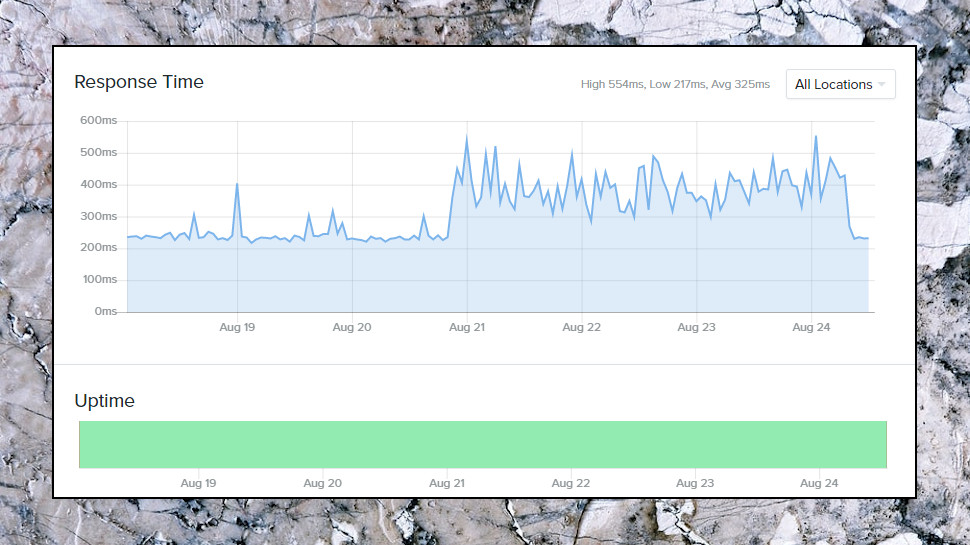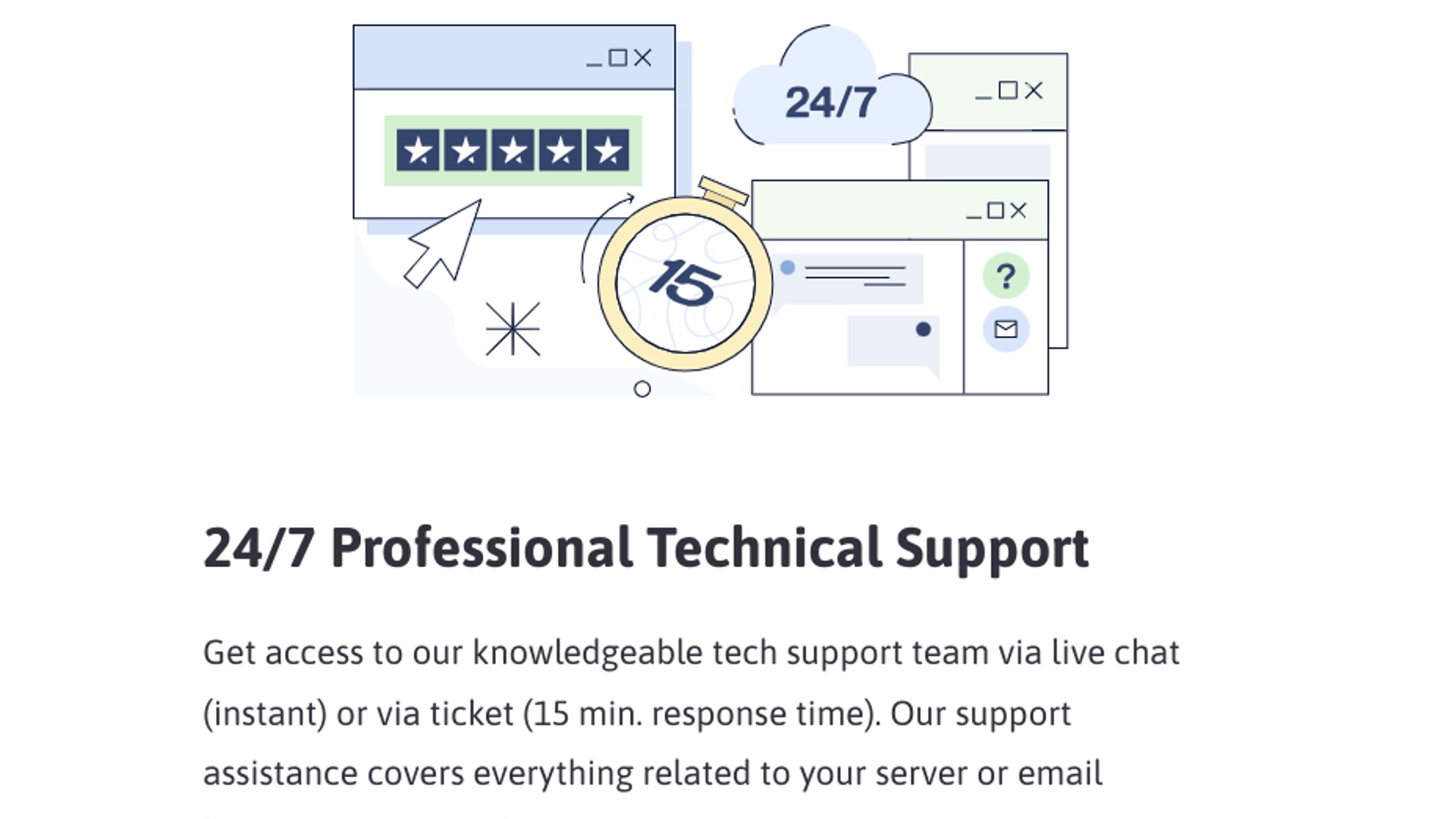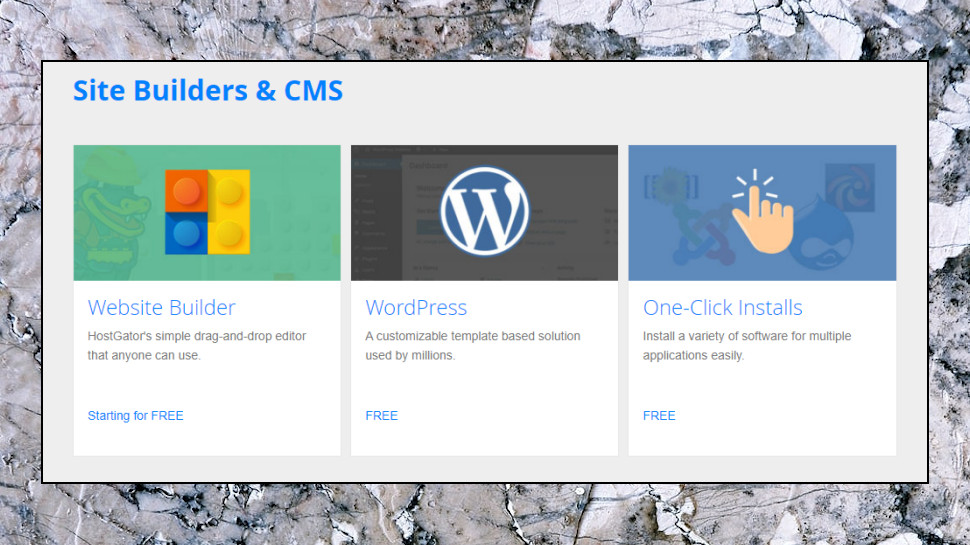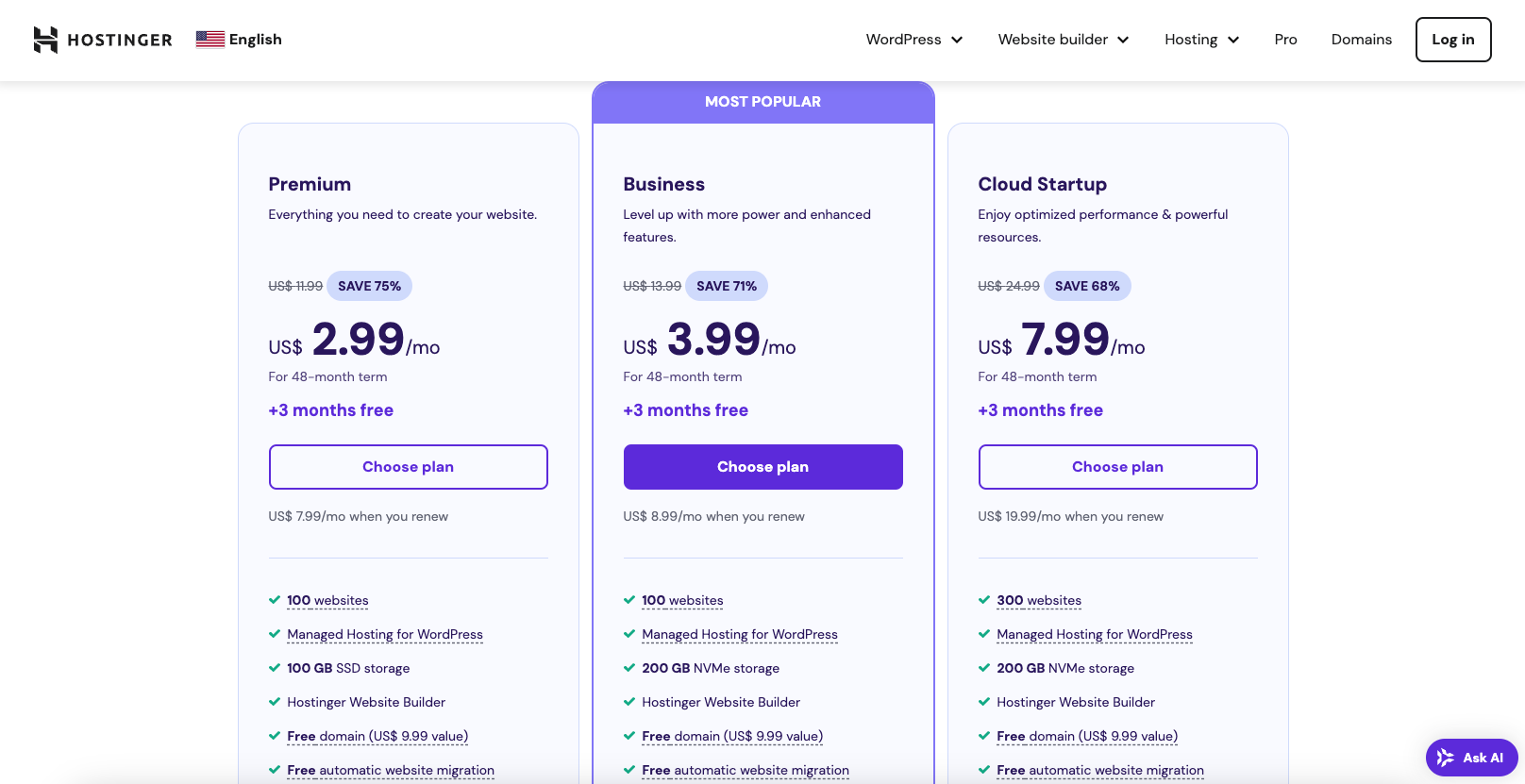How I test web hosting providers
The methodology behind our testing

I test web hosting providers to help you make an informed buying decision when it comes to web hosting solutions. The areas I look at are performance and reliability, tools and features, management and support, and cost and value. The results dictate which hosts are recommended on my buying guides such as best web hosting, best WordPress hosting, and best cheap web hosting.
You can use my recommendations, together with my explainers to help you choose the right type of hosting for you.

Performance and reliability
Performance and reliability are two of the most important things when it comes to web hosting. This is especially true for eCommerce stores and high traffic websites. You're paying for your website to be accessible and have a smooth user experience so its essential that you get that.
Performance
The performance of a website is not just down to the host, it's also down to you. A poorly optimized website or a website on a hosting plan that's not suitable for it will not have great performance nonmatter how good the server is.
To remove this variable we use a simple site and focus on metrics that show a servers performance more than the overall performance of the website. This way, your results may vary based on your site but the data gives us good baseline figures.
When we test it can appear as an attack on the server. To mitigate this we try to replicate natural traffic as much as possible by using multiple IP addresses. If we think performance is impacted by security measures, we'll try and get around this or we'll include this in the results.
To help you find the best plan for you, we also look at how a server is configured. Some are configured to give you the highest level of performance but don't scale so well for additional visitors while others save something in the bag for busy times. Hosts also estimate the monthly visits based on simple sites and non peak traffic.
Sign up to the TechRadar Pro newsletter to get all the top news, opinion, features and guidance your business needs to succeed!
For example, 25K monthly visitors translates to roughly three visitors every 5 minutes but that's not how people visit websites. There are peak times and times when people are sleeping and not using the internet. To give you a better idea of how many visitors can use your site at the same time we test to find the point at which the server can no longer deliver good performance for your users.
This way, if you roughly know how many concurrent visitors you expect for your site, you can better find the right plan for you. Every time a host upgrades or changes a server plan we retest too to keep the results up to date.
Metric | Test 1 | Test 2 | Difference |
Transactions | 3,865 | 6,309 | +2,444 (63% increase) |
Availability | 100.00% | 100.00% | No change |
Elapsed Time | 299.41s | 299.51s | +0.1s |
Data Transferred | 23.97 (MB) | 39.33 (MB) | +15.36 (64% increase) |
Response Time | 0.70s | 0.71s | +0.01s (1.4% increase) |
Transaction Rate | 12.91/s | 21.06/s | +8.15 (63% increase) |
Throughput | 0.08 | 0.13 | +0.05 (63% increase) |
Concurrency | 8.98 | 14.97 | +6.01 (67% increase) |
Successful Transactions | 3,865 | 6,309 | +2,444 (63% increase) |
Failed Transactions | 0 | 0 | No change |
Longest Transaction | 8.42s | 19.85s | +11.43s (136% increase) |
Shortest Transaction | 0.06s | 0.06s | No change |
What do these results mean?
The server had excellent stability. It handled 67% more transactions with only a 1.4% increase in response time and zero failed transactions. However, there is a potential concern there because at 15 concurrent visitors, the longest transaction time doubled. This could have an impact on user experience. When recommending this hosting plan I would suggest online stores that get more than 15 concurrent visitors at peak times use an upgraded hosting plan or a different host.
Reliability
Reliability is a metric that we test less often. For the most part, hosts are reliable. I will stick a website on a server and test it for two weeks but it doesn't really show anything other than there was zero downtime for two weeks.
For reliability I pay more attention to user reviews and check forums and other user generated comments on the host. If I see a pattern with a host being unreliable we'll do some testing to see if we experience the same.

Support and management
While not always the most important factor, support and management are a large part of the hosting cost. Self-managed servers are a lot cheaper than managed servers and when things go south you need to know someone is there to make things go north again.
Support
To test support I create a web app or online store with some funky or unusual configurations. I'll get it working to verify that it can be hosted and work as expected and then migrate it to a host. In most cases, first line support are unable to get the site online and working. It usually requires the higher levels of support to make some custom configurations on the server to get it working properly. Whether a host can get the site online and how quickly the ticket is raised to the higher levels of support are all key factors in how I rate support.
Management
For management I'm looking at how often plugins and server software is updated. Ensuring everything on a server is up-to-date is essential to getting good performance and security. If a host is lazy when it comes to updating to the latest versions it can leave your site at risk.
Another part of management is making sure servers perform well all the time. While our tests test the server they don't necessarily test how well the server is managed over time.
I'll leave a website on a server and do sporadic testing at random times. If the results vary significantly or there are no updates to plugins or server software it'll go against the host. I also keep an eye on what others are saying about their server being managed.

Tools and features
Unless a particular tool or feature is a unique selling point for a host we won't go beyond looking at the basic functionality. Usually if a particular feature is essential for business we'll review standalone tools. For example, most hosts provide a CDN and email but instead of focusing on the email and CDN provided by the hosts we have dedicated best CDN and best email hosting guides.
This criteria is especially important when recommending hosting providers for beginners. Web hosting is not always the most simple task so tools provided by hosts that are aimed at helping beginners and ease of use get my scrutiny on whether the tools actually make hosting easier or whether they're confusing things more or not actually providing much functionality. I've seen a range of AI tools released over the last year and some of these get a big tick from me while others do not.

Cost and Value
Value is something that I assess based on the cost of the host and the performance results alongside the quality of support and management, and the tools and features.
Hosts often try and excel in one area. It could be offering resources for more site visits at the expense of features like backups or a CDN. It can also be creating cheaper plans at the expense of email.
These compromises are only good if the advantages of pros outweigh the cons. Gathering data and using the hosts in each of these areas helps me make an accurate and valid judgment on a host and their products which I use to recommend web hosts to you.
Author


James is a tech journalist covering interconnectivity and digital infrastructure as the web hosting editor at TechRadar Pro. James stays up to date with the latest web and internet trends by attending data center summits, WordPress conferences, and mingling with software and web developers. At TechRadar Pro, James is responsible for ensuring web hosting pages are as relevant and as helpful to readers as possible and is also looking for the best deals and coupon codes for web hosting.
You must confirm your public display name before commenting
Please logout and then login again, you will then be prompted to enter your display name.